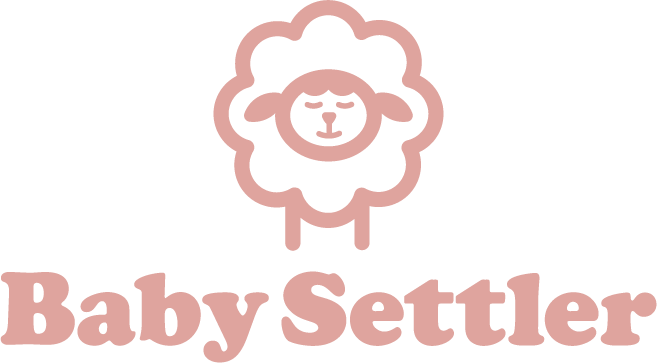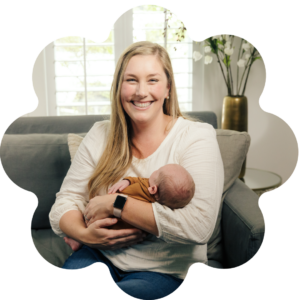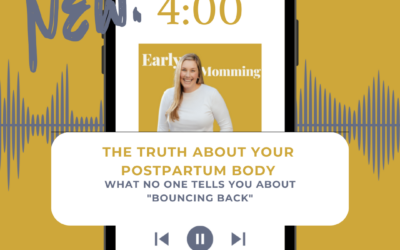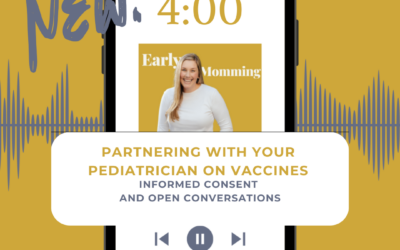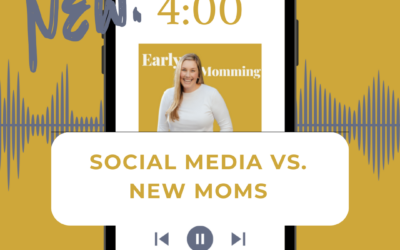Have you ever felt overwhelmed trying to find reliable breastfeeding resources? There’s so much breastfeeding advice out there so it can be challenging to figure out who’s reliable and who’s not. I’m going to break down my tier of the people who I really trust. These are the people you could add to your support system. Others, you’ll need to take what they say with a grain of salt!
First, Let’s Break Down Some Terminology
An IBCLC is an International Board Certified Lactation Consultant. “The International Board of Lactation Consultant Examiners (IBLCE) certifies lactation consultants who meet its rigorous criteria and pass its exam. An International Board Certified Lactation Consultant may use IBCLC or RLC after their name,” explains Cleveland Clinic.
A CLC – certified lactation counselor – is somebody who could be a mom mentor. Maybe they breastfed their own baby, took a course, got some extra training, and now they can be a counselor. “…a lactation consultant is a professional who helps moms learn the ropes of breastfeeding. They’re healthcare professionals who are skilled in lactation management,” explains The Bump.
An IBCLC is your highest-level expert when it comes to lactation. Sometimes you have a lactation counselor or a mentor who says that they are a lactation consultant. But a true lactation consultant is going to be someone who has an IBCLC credential.
Having an IBCLC who is also a registered nurse brings things to a whole other level! I’m a registered nurse who also has an IBCLC and I can tell you that I’m looking at more than someone who is just an IBCLC. I’m using my nursing brain in conjunction with my IBCLC brain. I’m also focusing on sleep and breastfeeding and how these two aspects rely on each other. If you can find someone that has that combo, it really is gold.

Unreliable Breastfeeding Resources
Advice from influencers who do not have the IBCLC certification or aren’t certified lactation consultants should be questioned.
Healthline outlines the importance of using social media wisely as a new parent. While it can be a great way to connect with other mamas, be careful about what you post and who you ask for breastfeeding advice.
I’m not saying that they’re wrong. They may be sharing evidence-based information. But, you at least have to pause and make sure that you’re approaching it with a questioning mindset.
Something that really triggers me is brands selling products to help with breastfeeding by using information that is just not accurate. Anytime you see a brand selling something, if it is not in collaboration with an IBCLC, it may not be reliable.
Who To Add To Your Support System: The Best Breastfeeding Resources
The next level of support is going to be the La Leche League or other moms who have breastfed and are trying to support you through their experiences. That’s great! We need those supportive people in our lives.
There are all kinds of brands (such as Medela) that have informative blogs. When you read blogs, see if the blog was written by an IBCLC. That would be good information. If it is written by a fellow mom who’s not an IBCLC, it may not be your most reliable source for breastfeeding help.
During pregnancy, I recommend that you dive into books written by IBCLCs.
I have a breastfeeding book called Babies Made Simple: The Modern Mom’s Roadmap to Navigating the Overwhelming Baby Stage. This works as your guide to birth and baby sleep and provides reliable breastfeeding advice.
There are tons of other books on the market that talk about breastfeeding. These can be very helpful in preparing you for the transition into motherhood.
When it comes to finding an IBCLC, check with your local hospital or birth center – they should have partnerships with IBCLCs. These places could also have breastfeeding classes that you can go to in person. However, many breastfeeding classes are outdated, and you might actually feel less encouraged when you leave. But definitely check them out – you might find a good one.
There are lots of private practice lactation groups throughout the nation that offer their own in-person breastfeeding class. I would prefer an out-of-the-hospital private practice breastfeeding class just because they have the ability to curate the content. Plus, you don’t have to worry about hospital policy and politics.
Self Learning
If you are the type that likes to learn on your own and go at your own pace, you can look at breastfeeding classes online. I have an online course called Breastfeeding Made Simple. Through this course, you’ll learn everything you need to know about breastfeeding and pumping, including how to navigate developmental leaps and extend nighttime sleep with breastfeeding.
Book A Prenatal Lactation Consultation
I highly recommend a prenatal consult, especially if you’re in a high-risk category, such as:
- Being pregnant with multiples. One study found that breastfeeding multiples has its own unique challenges so specific breastfeeding advice is needed, “Women who expect and/or have multiple babies need much more support and guidance, which may include advice on nutritional and daily care.”
- Going to deliver before 37 weeks. As the Children’s Hospital of Philadelphia explains, late preterm babies do not have the same feeding patterns as healthy full-term babies.
- Have a history of breast surgery or biopsy.
- Have a history of hypothyroid, PCOS, or infertility.
These conditions are all high risk for low milk supply.
Even if you are not experiencing any pregnancy issues, prenatal breastfeeding classes or pregnancy courses are still beneficial. “The best time to call a lactation consultant is while you’re expecting, as your counselor can help you mentally and physically prepare for breastfeeding. You’ll practice holding your baby for optimal feeding, and receive tips on everything from the best pump to how to enlist your partner in breastfeeding,” says What To Expect.

The American College of Obstetricians and Gynecologists also recommends the importance of having a lactation consultant come to you soon after arriving home with your newborn. This is because it can take some time to get the hang of breastfeeding.
Getting comfortable with breastfeeding can have a positive effect on your baby’s sleep, too.
The Link Between Breastfeeding And Sleep
While it’s great to listen to experts, the biggest lie the sleep training industry will feed you is that strictly following “the script” from experts, books, or online courses will automatically result in your baby having a predictable routine and sleeping through the night.
An All Too Common Situation
I was two weeks postpartum, overwhelmed, beyond exhausted, and sobbing at the drop of anything. I couldn’t even answer a simple question. My husband walked in the door and asked, “How was your day?” and I immediately burst into tears.
I could not put my baby down. As soon as I set him down he woke up and started wailing. My gut told me he wasn’t getting enough breast milk, but I had been doing everything “right”. He was gaining “adequate weight” per my pediatrician. He was having enough wet diapers. But he was eating every one to two hours around the clock for 45+ minutes each feed, and neither of us was getting more than an hour of sleep at a time.
I desperately wanted to breastfeed, but I wondered if this was really what it was supposed to be like. How do other moms do this? I asked my husband to call the lactation consultant we’d seen at the hospital and ask if this was normal. “She needs to feed the baby as much as he wants to feed. Feeding him at least 11 to 12 times a day or more is normal. She needs to feed him on demand and let him sleep on her between feeds. If she wants to be successful with breastfeeding, this is what she has to do.”
I was completely overwhelmed by that breastfeeding advice. I felt like my life as I knew it was over. Thoughts like: All I’m ever going to do is breastfeed, change his diaper, and try to get him to go to sleep came to mind. Feelings of isolation overwhelmed me. I wanted to breastfeed my new baby, but I also desperately wanted to get some sleep. I needed some type of routine I could count on.
It felt like I had to choose breastfeeding or sleep, and if I were to choose sleep over breastfeeding, I was making a selfish decision. So at that moment, I chose breastfeeding because I wanted to be a good mom. But being an open buffet 24/7 and continued sleep deprivation with neither of us getting quality sleep for over a month did not suit me. Within six weeks, I became obsessed with getting him on a routine and finding an action plan to get more sleep because I was losing myself. But nothing was working.
“Most parents cope with a certain level of tiredness. But if you’re feeling low, bad tempered and unable to cope or enjoy things, you need to find a way of getting more sleep, or at least more rest,” tells the NHS.

The Challenge
As the months went on, I realized that all of the breastfeeding advice I got from blogs, experts, books, or online courses I read, watched, and researched knew how to empower a breastfeeding mom to meet her unique goals while also promoting uninterrupted nighttime sleep. However, to find “success” I need to follow their schedule, process, or steps. But none of it felt intuitive. I felt like a robot mom, and my baby was not responding like they said he should. When something went “wrong”, I found myself mindlessly searching for the answer in their book as if they knew my baby when in fact, they had no idea about any specifics in my life.
Looking back, I feel incredibly foolish and gut-wrenching sick as to the things I did all in an effort to find structure and sleep. But I didn’t have the knowledge I needed to really understand that it didn’t have to be that way.
Here’s the thing, Mama: You can absolutely breastfeed your baby and have them sleep through the night. However, you’ve got to have the knowledge needed to navigate this journey.
What I Did
Looking back, the books, blogs, and experts weren’t giving me helpful, clear evidence-based information. I wasn’t empowered to think critically about my specific situation and meet my personal feeding and sleep goals.
Breastfeeding and nighttime sleep aren’t mutually exclusive, and that’s a fact. Over the next four years, I spent every available free hour I had studying. I became a nurse and lactation consultant so I could understand the connection between feeding and baby sleep.
After reviewing thousands of pages of evidence-based journals; reading (again) all the baby sleep and breastfeeding books on the market; talking with pediatricians, other lactation consultants, and sleep experts; getting three degrees; and going through seven years of nursing, and over 10,000 hours working with moms and babies, I finally figured out the ‘Simple’ Method to simplifying that crazy, stressful baby stage!
Breakthrough Journey
When you understand how lactation works and that feeding affects sleep and sleep affects feeding, you will feel empowered to make informed decisions about your breastfeeding journey. You’ll be able to establish a routine you can count on, and you and your baby will get that much-needed nighttime sleep.
I’m Hillary, the founder of Baby Settler. I’m also a mom of four, a nurse, and a lactation consultant. I’ve spent my entire nursing career working with mamas and babies as a bedside nurse (in labor, delivery, and postpartum) and as a newborn transition nurse (catching babies).
I’m here to share breastfeeding advice from the knowledge I’ve gained so you can bypass everything I went through, meet your feeding goals, and have a baby that sleeps through the night.
The reason I share this story with you is because I’ve seen so many new moms start to head down that same path only to find themselves exactly where I was. The truth is that gaining expert knowledge is the fastest, most effective way to get your baby on a routine and sleep through the night. This is how you can embrace this season of life and feel confident in your role as a mother.
If you don’t have a good knowledge base, you’re going to feel overwhelmed. Plus, you’ll feel uncertain when it comes to all the breastfeeding advice that’s being thrown at you.
Everyone wants to tell you how you should be feeding your baby and what you need to do to get your baby to sleep. Your pediatric provider doesn’t have the time or expertise to help you with things beyond well-checks and illness visits. When you don’t even know what questions to ask, you might find yourself in moments of resentment overshadowing the joys of motherhood. You could also feel a growing frustration that could leave you feeling detached and bitter.
I think one of the biggest challenges new moms face is their lack of knowledge about how their baby works. And that’s why I wrote Babies Made Simple. You can grab it here or you can find out more about Baby Settler and our mission by going to our website.

Final Takeaway
I highly encourage you to do education ahead of time – read the books, take online breastfeeding classes and pregnancy classes, and schedule a prenatal consult. Also, find your lactation consultant (you can also ask your pediatrician if they have somebody they work with) who is going to be your person. If you try one and you don’t like them, find another one; there are lots of us out there!
Take the next step and gain access to the knowledge you need so you can feel confident you’re making informed decisions about what’s best for you and your baby.
